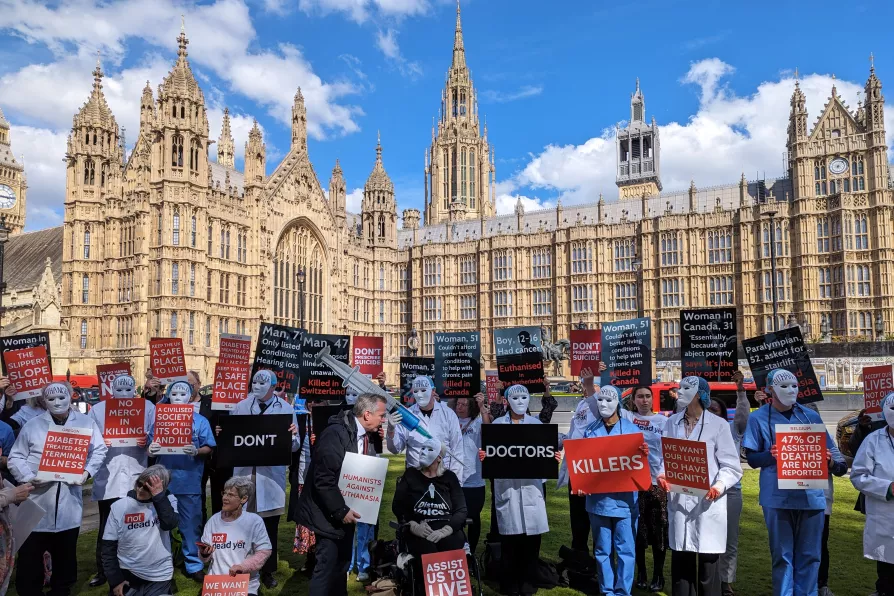Disabled People Against Cuts and Not Dead Yet rally against assisted dying as parliamentary debate begins


CAMPAIGNERS for and against assisted dying rallied outside Parliament today ahead of an MPs’ debate on changing the law.
Celebrities including Esther Rantzen, who announced her support for assisted dying after revealing she has stage four lung cancer last year, Dame Prue Leith and broadcaster Jonathan Dimbleby urged MPs to change the law so terminally ill people can legally be helped by doctors to kill themselves.
But activists opposed to changing the law from Not Dead Yet and Disabled People Against Cuts (DPAC) warned legalising assisted suicide would put vulnerable people in danger.
Similar stories

Campaigners vow to keep up fight against Assisted Dying Bill as it clears House of Commons













